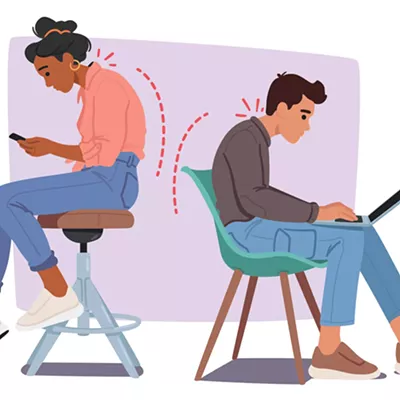Growing up in northeast India, Renu Sinha recalls her family using therapies from Western and Eastern traditions to stay healthy. They would meditate and practice yoga, and she recalls getting ayurvedic treatment, an ancient Indian healing system. When she was sick, her mother would give her ginger tea sprinkled with turmeric, a spice long used in Asian cuisine that's recently been recognized for its range of health benefits.
After moving to the U.S. and graduating from medical school, Sinha took a job teaching at the University of Arizona's College of Medicine. There, she says, therapies from various traditions were similarly blended. Andrew Weil, a physician who has popularized complementary and alternative treatments, is on the faculty.
But when she moved to Spokane, where she works a surgeon specializing in thyroid surgery, she says she didn't find the same acceptance of nontraditional medicine.
Now Sinha, and a group of like-minded health care providers, are hoping to change the culture of medical care in Spokane. Specifically, Sinha wants nontraditional therapies, including Tai Chi, acupuncture, special diets, chiropractic and other unconventional treatments to become as mainstream in Spokane as X-rays and prescriptions.
"If we educate and break down barriers, we can improve access and opportunities for wellness, and improve discussions between health care providers on how we can integrate traditional and nontraditional approaches," says Sinha.
Since June, the group of health care professionals (about half are medical doctors) called "Healing Spokane" has been meeting nearly every month to exchange ideas and strategies on how to make better use of nontraditional therapies. They're also planning on holding forums intended to educate the public on the benefits of nontraditional therapies for common ailments; the first was a back pain forum in September.
Sinha says that research is increasingly confirming the effectiveness of many treatments that were once dismissed by mainstream medicine. For instance, she points to research published in medical journals showing that acupuncture, yoga, Tai Chi, massage therapy and relaxation techniques have the potential to help treat and manage pain. She also says that some of the these treatments are being embraced by the Duke University School of Medicine and the Mayo Clinic.
They're also being embraced by patients. In 2012, the National Health Interview Survey found that 59 million Americans spent $30 billion on alternative care.
However, despite growing evidence and a clear interest from patients, there are barriers to making these treatments more widely accepted in places like Spokane.
"We're a pill-popping society," says Catherine Anne Lee, a rheumatologist involved with Healing Spokane, who became interested in complementary medicines after her patients kept seeking them.
Patients and medical professionals, she says, are accustomed to looking for quick fixes for ailments. But taking medications or having an invasive surgery can carry side effects, says Lee, and a lifestyle change that incorporates treatments such as massage therapy and chiropractic work can lead to lasting health.
"I think medications can only take you so far," says Lee, who notes she's had patients who switch to low-sugar, low-glucose or anti-inflammatory diets, and it's made a significant difference in their health.
Lee says that one obstacle to having complementary therapies used more widely is that insurance plans differ in terms of what types of treatments they'll cover. And, she says, if patients have to pay out of pocket for an additional complementary treatment, they might just skip it.
Lee and Sinha, both specialists, say they have more time to discuss alternative or complementary therapies with their patients. They point out that primary care doctors are typically pressed for time and aren't able to talk with patients about holistic approaches to their health that include diet changes, stressors and therapies that might be helpful.
"You can't do that in 10 minutes," says Lee.
Sherry Wu, a local physician who grew up in China, decided to go back to school for a master's in traditional Chinese medicine after getting her medical doctorate. Now, Wu, who is also involved with Healing Spokane, offers acupuncture to help patients with pain relief. But she says that for many members of the public, nontraditional treatments still seem "mysterious or odd."
Lee says Healing Spokane provides an opportunity for simply meeting with other health care professionals who have a similar philosophy, noting it is helpful for them to swap ideas. She says they all have a goal of maintaining patients' health and doing more than just responding to diseases, which she says have become the focus of traditional Western medicine.
In the future, Sinha says she hopes to get nonprofit status for Healing Spokane and further expand its outreach efforts to the city's medical community and local patients. She thinks the message will eventually take hold in Spokane the same way it has in other communities.
After all, she says, "We're not talking about crazy stuff." ♦

















